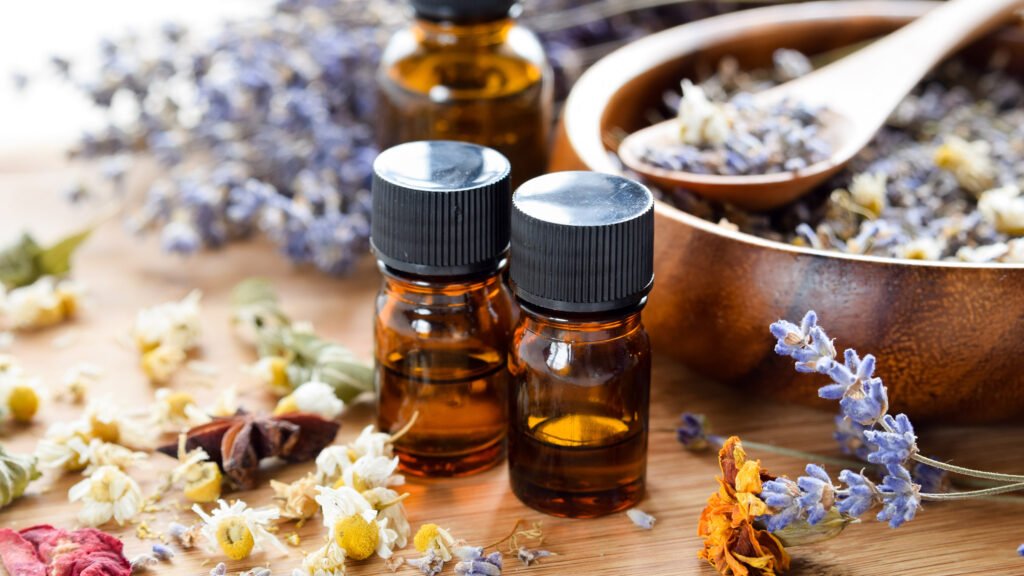
Sleep is the cornerstone of physical, mental, and emotional well-being, yet millions of people struggle to achieve the restful slumber their bodies crave. In a world filled with endless distractions, stress, and fast-paced lifestyles, quality sleep often becomes a challenge. Poor sleep not only impacts energy levels but also weakens immunity, increases stress, and affects cognitive function.
For centuries, people have turned to nature for remedies that help soothe the mind and body. Among the most trusted natural solutions are lavender and chamomile—two gentle, fragrant plants known for their calming properties. These botanicals have stood the test of time, celebrated in various cultures for their ability to promote relaxation and improve sleep.
This article delves into the benefits, uses, and scientific backing of lavender and chamomile as natural sleep aids. From understanding their calming mechanisms to practical tips for incorporating them into your routine, this guide provides everything you need to embrace these gentle remedies for better sleep and holistic well-being.
Why Sleep Matters
The Foundation of Health
Sleep is not just about resting; it’s a biological necessity. During sleep, your body repairs tissues, consolidates memories, and regulates hormones. Chronic sleep deprivation can lead to an increased risk of heart disease, diabetes, and mental health disorders like anxiety and depression.
Common Sleep Challenges
Insomnia, restless nights, and frequent awakenings are common complaints in modern society. Factors like stress, poor diet, and excessive screen time before bed disrupt the body’s natural sleep-wake cycle, leaving many searching for solutions.
The Rise of Natural Sleep Aids
With growing awareness of the side effects of pharmaceuticals, natural sleep aids like lavender and chamomile are gaining popularity. These remedies not only support relaxation but also align with a holistic approach to health, addressing the root causes of sleep disturbances.
Lavender: The Relaxation Powerhouse

Overview of Lavender
Lavender has a rich history in traditional medicine, dating back to ancient Egypt, Greece, and Rome. Known for its soothing aroma, it is widely used in essential oils, dried flowers, teas, and bath products.
How Lavender Promotes Sleep
Lavender’s calming effects are primarily attributed to compounds like linalool and linalyl acetate. These components interact with the nervous system, reducing anxiety and inducing a sense of calm. By lowering heart rate and promoting relaxation, lavender prepares the mind and body for restful sleep.
Scientific Evidence
Numerous studies highlight lavender’s efficacy as a natural sleep aid. Research published in The Journal of Alternative and Complementary Medicine found that participants exposed to lavender aromatherapy experienced improved sleep quality and reduced symptoms of insomnia. Another study demonstrated that lavender oil capsules significantly reduced anxiety in individuals, further supporting its role in promoting relaxation.
Practical Applications
- Aromatherapy: Add a few drops of lavender essential oil to a diffuser or apply it to your pillow before bed.
- Bedtime Baths: Incorporate lavender-scented bath salts to unwind.
- Massage: Mix lavender oil with a carrier oil for a relaxing bedtime massage.
Chamomile: Nature’s Soothing Herb

Overview of Chamomile
Chamomile, a daisy-like flower, has been revered for centuries for its medicinal properties. It is commonly consumed as tea but is also available in capsules, extracts, and topical applications.
How Chamomile Supports Relaxation
Chamomile’s calming effects are linked to apigenin, an antioxidant that binds to certain receptors in the brain. This interaction reduces anxiety and promotes sedation, making chamomile an ideal choice for those seeking gentle relaxation.
Scientific Evidence
Studies consistently support chamomile’s role in enhancing sleep quality. A 2017 study published in Phytomedicine found that postpartum women who drank chamomile tea for two weeks reported better sleep quality and reduced symptoms of depression. Similarly, clinical trials have shown that chamomile extract effectively reduces the time it takes to fall asleep.
Practical Applications
- Tea: Brew a cup of chamomile tea 30 minutes before bedtime for a soothing ritual.
- Blends: Combine chamomile with other calming herbs like valerian root or passionflower for enhanced effects.
- Topical Use: Apply chamomile-infused lotions to relax the body.
Comparing Lavender and Chamomile
Shared Benefits
Both lavender and chamomile are celebrated for their calming properties. They reduce stress, promote relaxation, and improve sleep quality, making them ideal for nighttime routines.
Key Differences
- Application: Lavender is often used in aromatherapy, while chamomile is predominantly consumed as tea.
- Aroma: Lavender’s floral scent is invigorating, whereas chamomile’s subtle, earthy flavor is comforting.
- Active Compounds: Lavender relies on linalool for its effects, while chamomile’s benefits stem from apigenin.
Combining the Two
For maximum benefit, combine lavender and chamomile in your sleep routine. For example, sip chamomile tea while diffusing lavender oil or use a lavender pillow spray after enjoying chamomile tea.
Creating a Sleep-Inducing Routine with Lavender and Chamomile
Practical Tips
- Start Early: Begin your wind-down routine an hour before bed.
- Set the Mood: Dim the lights, play soft music, and use lavender-scented candles.
- Tea Time: Brew a cup of chamomile tea and savor it slowly.
- Aromatherapy: Diffuse lavender oil to fill your space with a calming aroma.
- Mindfulness: Practice deep breathing or meditation to enhance the effects.
Consistency is Key
A consistent bedtime routine helps train your body to recognize sleep cues. Integrating lavender and chamomile into this routine amplifies their benefits, creating an environment conducive to rest.
Safety and Considerations
Potential Side Effects
While generally safe, both lavender and chamomile may cause allergic reactions in sensitive individuals. Chamomile, for instance, is related to ragweed and may trigger allergies in those prone to hay fever.
Interactions
- Lavender: Avoid using lavender oil in large quantities if pregnant or nursing.
- Chamomile: Consult a healthcare provider if you’re on blood-thinning medications or have a history of allergies.
Suitability
Both remedies are gentle enough for children and elderly individuals, but always start with small doses and monitor for adverse reactions.
Conclusion
Lavender and chamomile stand out as two of nature’s most trusted allies in the pursuit of better sleep. Lavender’s fragrant essence calms the mind, while chamomile’s soothing compounds ease the body into relaxation. Together, they create a harmonious blend that supports rest and rejuvenation.
Incorporating these gentle remedies into your nightly routine is a simple yet powerful step toward holistic well-being. Whether through lavender’s aroma or chamomile’s warmth, these natural solutions offer a path to deeper, more restorative sleep.
Ready to embrace a more restful night? Begin your journey with lavender and chamomile today, and experience the transformative power of nature’s gentle touch.








